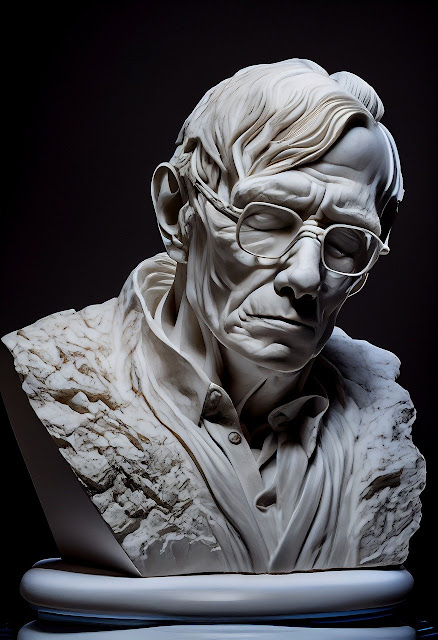Stephen Hawking, an iconic figure in the world of science, left an indelible mark not only for his groundbreaking discoveries in theoretical physics but also for his resilient spirit that defied physical limitations. His life journey was a testament to the power of the human mind and its capacity to transcend barriers.
Born on January 8, 1942, in Oxford, England, Hawking showed early signs of brilliance. He pursued his education at the University of Oxford, where he studied physics, and later earned his Ph.D. in cosmology at Cambridge University. It was during his graduate studies that he was diagnosed with amyotrophic lateral sclerosis (ALS), a debilitating motor neuron disease that progressively paralyzed him.
Despite the grim prognosis of a two-year life expectancy, Hawking defied the odds, embarking on a remarkable scientific career that would span decades. His contributions to theoretical physics, particularly in the realms of black holes, cosmology, and the nature of the universe, revolutionized our understanding of space and time.
One of his most famous discoveries was the theory of Hawking radiation, proposing that black holes emit radiation and gradually lose mass, ultimately evaporating—a concept that challenged established notions in physics and sparked new avenues for research.
Hawking's ability to communicate and work was severely constrained by his physical limitations. As ALS gradually robbed him of the ability to move, speak, and even write, he relied on a computerized speech synthesizer and a wheelchair. However, his mind remained sharp and his determination unwavering. With the aid of technology, he continued to lecture, write, and contribute to scientific discourse.
His book, "A Brief History of Time," aimed to make complex scientific concepts accessible to the general public, becoming a bestseller and cementing his status as a popularizer of science. Through his lectures, writings, and media appearances, he captivated audiences worldwide, inspiring countless individuals to delve into the mysteries of the universe.
Beyond his scientific achievements, Hawking became an emblem of resilience and determination. He demonstrated that limitations need not define one's potential and that the power of the human intellect can transcend physical constraints.
Hawking's legacy extends far beyond the realm of theoretical physics. He advocated for scientific literacy, warned about the dangers of climate change, and emphasized the importance of space exploration for the survival of humanity.
His passing on March 14, 2018, marked the end of an era, but his legacy endures through his groundbreaking theories, inspirational life story, and his unwavering determination to unravel the mysteries of the cosmos.
Stephen Hawking's life serves as a reminder that the human spirit is boundless, capable of transcending adversity and that the pursuit of knowledge knows no boundaries. His contributions to science and his resilience in the face of adversity continue to inspire generations, leaving an indelible imprint on the fabric of humanity's quest for understanding the universe.



